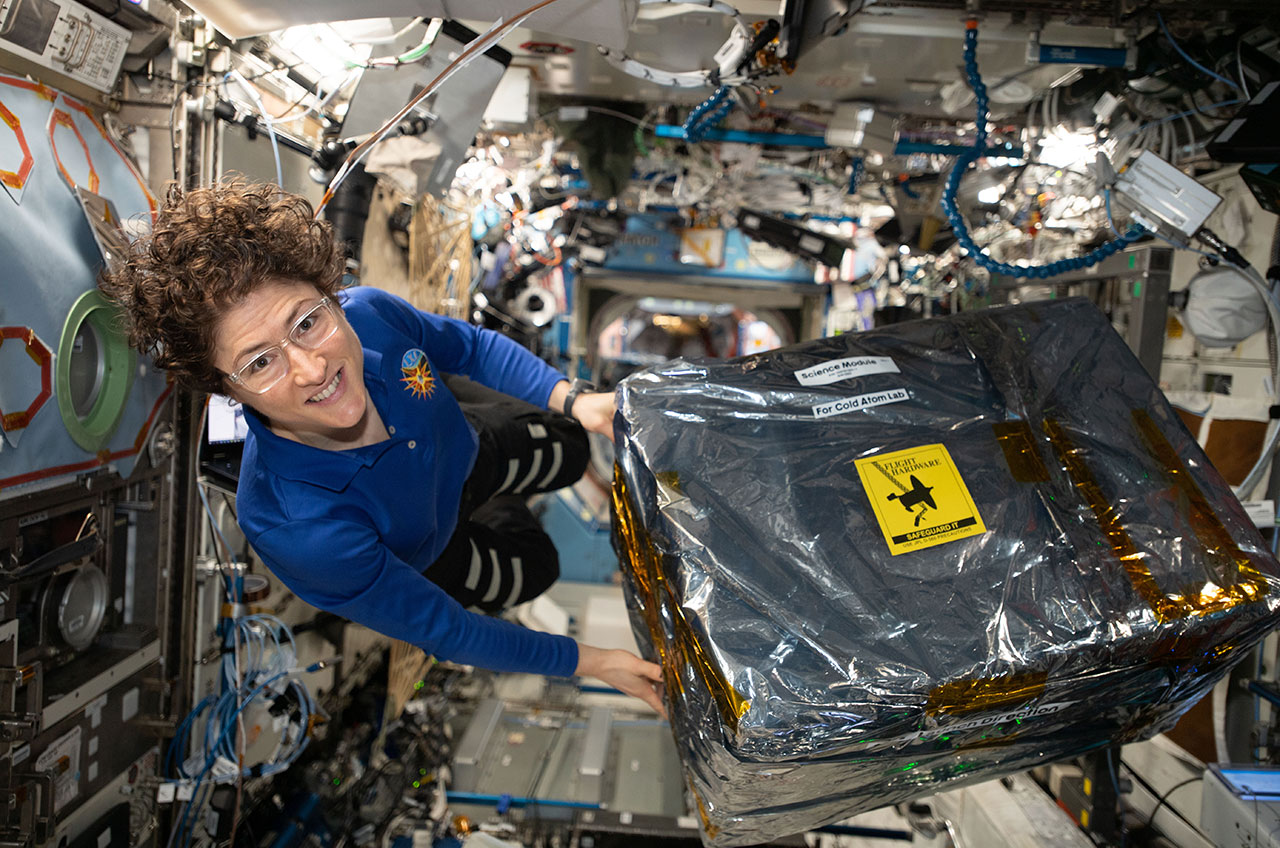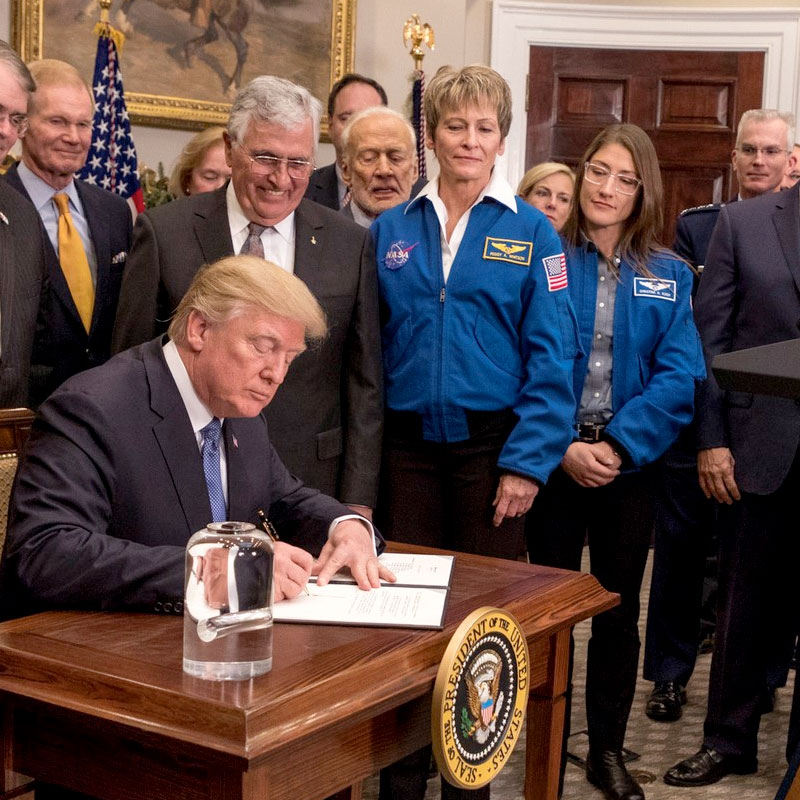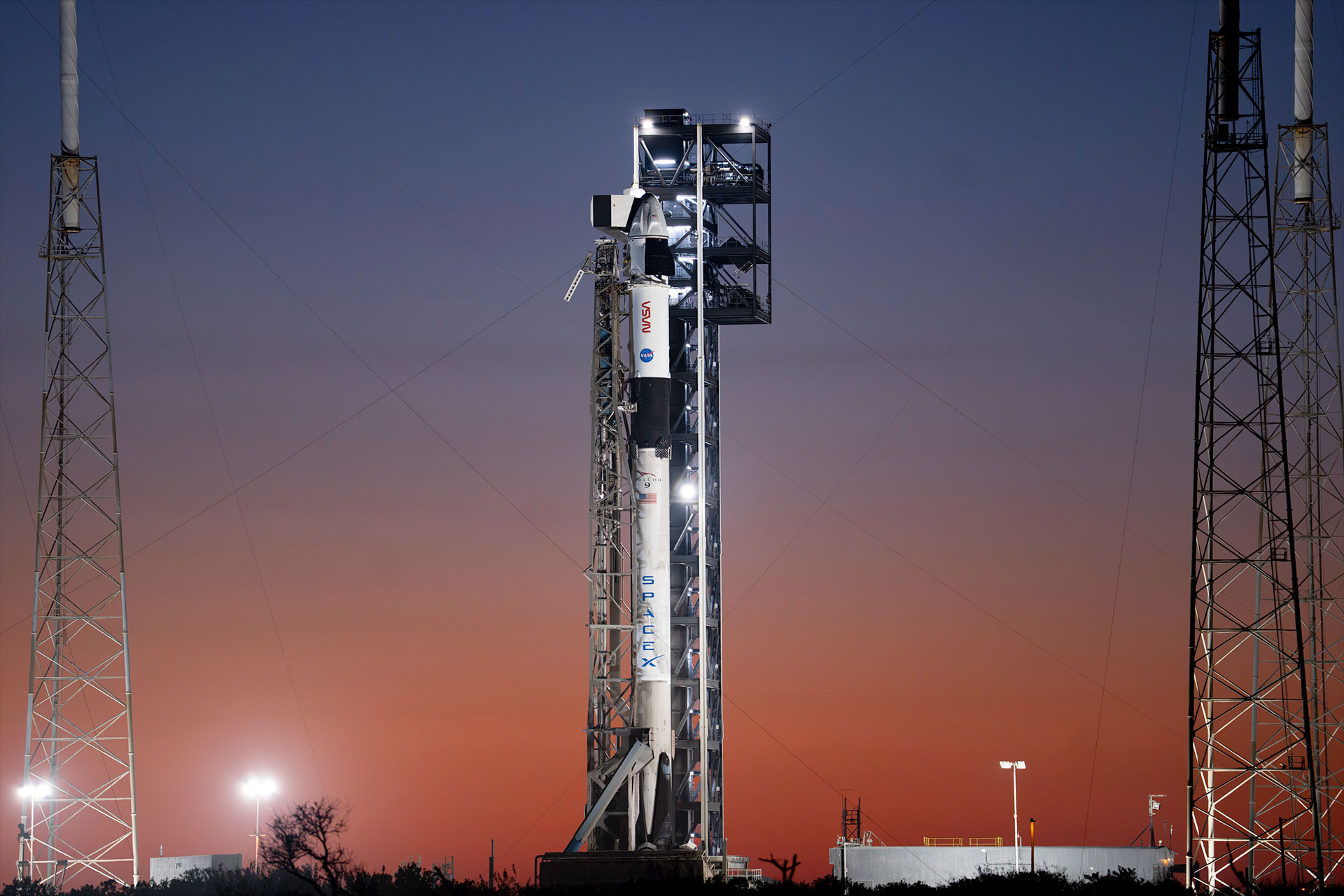Astronaut Christina Koch Breaks Record for Longest Space Mission by a Woman

Breaking space news, the latest updates on rocket launches, skywatching events and more!
You are now subscribed
Your newsletter sign-up was successful
Want to add more newsletters?

Delivered daily
Daily Newsletter
Breaking space news, the latest updates on rocket launches, skywatching events and more!

Once a month
Watch This Space
Sign up to our monthly entertainment newsletter to keep up with all our coverage of the latest sci-fi and space movies, tv shows, games and books.

Once a week
Night Sky This Week
Discover this week's must-see night sky events, moon phases, and stunning astrophotos. Sign up for our skywatching newsletter and explore the universe with us!

Twice a month
Strange New Words
Space.com's Sci-Fi Reader's Club. Read a sci-fi short story every month and join a virtual community of fellow science fiction fans!
A NASA astronaut has set a new record for time spent in space, and she still has six weeks to go before she returns to Earth.
Christina Koch has surpassed the record for the single longest space mission by a woman as previously established by NASA astronaut Peggy Whitson in 2017. The 40-year-old Expedition 61 flight engineer exceeded Whitson's record of 289 days, 5 hours and 1 minute on Saturday (Dec. 28) at 6:16 p.m. CST (0016 GMT on Dec. 29).
Video: Peggy Whitson Sends Zero-G Congrats to Christina Koch's Record
Related: Women in Space: A Gallery of Firsts
"Having the opportunity to be up here for so long is truly an honor," said Koch during a series of press interviews on Thursday. "Peggy is a heroine of mine and has also been kind enough to mentor me through the years, so it is a reminder to give back and to mentor when I get back."
Koch launched to the space station on March 14 on what was expected to be a typical six-month mission. Then her stay was extended by NASA, in part to collect more data about the effects of long-duration spaceflight. She is now slated to land on Feb. 6, 2020.
Related: The Most Extreme Human Spaceflight Records
"It is a wonderful thing for science. We see another aspect of how the human body is affected by microgravity for the long term. That is really important for our future spaceflight plans, going forward to the moon and Mars," said Koch.
Breaking space news, the latest updates on rocket launches, skywatching events and more!
If her return to Earth remains as scheduled, Koch will have logged 328 days in space — just 12 days shy of the longest single spaceflight by a NASA astronaut, 340 days, set by Scott Kelly during his "year-long" mission from 2015 to 2016.
"I like to think of the record as not so much about how many days you're up here, but what you bring to each day, so [it is] another great reminder to just bring your best," Koch said.
In addition to servicing NASA's science goals, Koch said she feels that milestones like hers helps increase outreach and inspires.
"Outreach, because it gets the conversation going about the state of the art, where we are in human exploration. And inspiring, because I think as a milestone it can motivate people," she said. "It also motivates me, because on those rough days I remind myself that, 'You know, this hasn't been done before, it makes sense that it is hard.' It makes sense that I have to dig deep sometimes."
This is the second record that Koch has set during what is her first spaceflight. In October, Koch and NASA astronaut Jessica Meir became the first two women to perform a spacewalk together.
"I think that highlighting it was the first all-female EVA, [or] spacewalk, is important because seeing those milestones be broken tells people where we are at and where we think the importance lies," said Koch. "I think it is inspiring because future space explorers do need to see people who remind them of themselves."
Related: The 1st All-Woman Spacewalk: Photos, Videos and Celebratory Tweets
"That was certainly true for me and my background," Koch continued, "so to have that opportunity to do it for future space explorers is a real honor."
Although Koch will take the record the longest single spaceflight by a woman, Whitson retains the records for the most cumulative time in space by an American astronaut and by a woman worldwide at 665 days logged over three missions.
The world record for the single longest mission by any space explorer, man or woman, is held by cosmonaut Valery Polyakov, who spent 438 consecutive days on board Russia's former space station Mir from January 1994 to March 1995. Cosmonaut Gennady Padalka holds the world record for the most cumulative time in space at 878 days over the course of five missions.
"My biggest hope for [this] record is that it is exceeded as soon as possible again, because that means we are continuing to push those boundaries," said Koch.
- The Human Body in Space: 6 Weird Facts
- Women in Space: A Gallery of Firsts
- The Spacewalks of Expedition 59 in Photos
Follow collectSPACE.com on Facebook and on Twitter at @collectSPACE. Copyright 2019 collectSPACE.com. All rights reserved.


Robert Pearlman is a space historian, journalist and the founder and editor of collectSPACE.com, a daily news publication and community devoted to space history with a particular focus on how and where space exploration intersects with pop culture. Pearlman is also a contributing writer for Space.com and co-author of "Space Stations: The Art, Science, and Reality of Working in Space” published by Smithsonian Books in 2018.
In 2009, he was inducted into the U.S. Space Camp Hall of Fame in Huntsville, Alabama. In 2021, he was honored by the American Astronautical Society with the Ordway Award for Sustained Excellence in Spaceflight History. In 2023, the National Space Club Florida Committee recognized Pearlman with the Kolcum News and Communications Award for excellence in telling the space story along the Space Coast and throughout the world.


